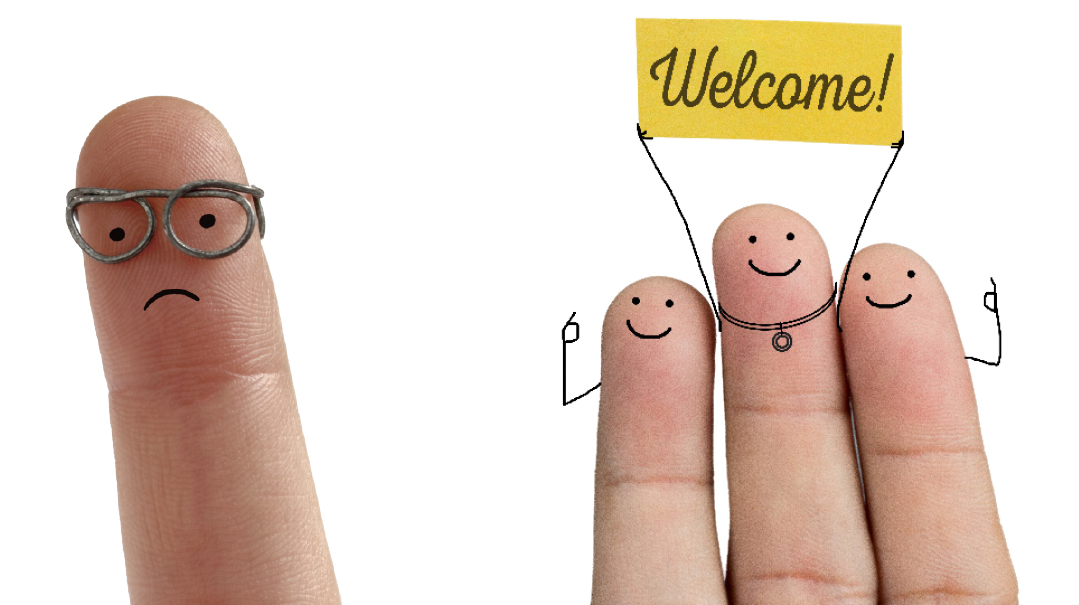Reduced to Our Income Brackets

Can’t I be friends with someone who’s in a very different financial bracket than I am?

You asked
A close friend and I are in very different financial brackets. We’ve been friends for the longest time, and I can’t really pinpoint when this began to affect our relationship, but lately it’s become a real issue.
My husband and I do fairly well financially, baruch Hashem. My friend and her husband both work very hard but they can’t make ends meet. I know there are areas of her life that I cannot ever truly understand — just as there are areas of my life that she cannot — but I always assumed every relationship is like that.
And yet, money keeps coming up between us because, understandably, that’s always on her mind. I cannot recall a conversation in the past several months where she hasn’t brought up the fact that I “don’t get it” because I don’t struggle financially. She tries to say it in a light way, as if it’s no big deal, but she keeps mentioning it and I can hear the pain in her voice.
I try to be very careful around her, but it’s hard for me to know what she wants. In our early mothering years, I offered her baby items or clothing that I wasn’t using anymore, and she seemed happy to take them. Every so often she’d even ask me for something specific. When my in-laws were getting rid of their gorgeous living room furniture, I called her immediately and she was thrilled.
Slowly, though, things have shifted, and even when she really needs or wants something, she says things like, “Oh, I love charity,” or, “It’s so not awkward taking your hand-me-downs.” I understand that means she’s uncomfortable, but I don’t know whether or not that means I should stop offering.
In general, I’ve always been discreet about our finances. We don’t live grandly; our house and car are like everyone else’s on the block. But somehow, this has become a block between us. All of her life struggles boil down to lack of funds, whether it’s repairs for the car, therapy for a child, or never being able to take her children somewhere special. She’ll vent, then end off bitterly and predictably, “You’ll never understand, you don’t have these issues…,” as if I’ve done something wrong by being able to pay for therapy, tutoring, or braces.
Before her last simchah I deliberated for days over whether to send her something simple and meaningful, like beautiful baked goods and a supper or two, like she sends me, or something grand that would add a lot to her simchah. I ended up sending something along the lines of what she sends me because I didn’t want her to feel like I was throwing my money in her face. Then I overheard her say, “I wish someone would have sent a big sushi platter, or monogrammed cookies; it would have meant a lot to my son…” I felt terrible. I would have been thrilled to send both those things, but was afraid she’d feel bad.
By now I feel like we’re losing every other aspect of our long-standing friendship because everything always comes down to money. Can’t I be friends with someone who’s in a very different financial bracket than I am?
We answered
Rebbetzin Michal Cohen LCSW is the rebbetzin of Congregation Adas Yeshurun in Chicago where her husband Rabbi Zev Cohen has been the rav for decades. She’s a licensed clinical social worker at a family service agency, counseling individuals, couples, and families for well over 20 years, and she teaches kallahs under the auspices of Daughters of Israel.
I love this question because understanding how to navigate this issue teaches us many basic lessons that apply to all relationships.
Your question actually has little to do with finances and everything to do with relating to a friend who’s going through a difficulty you haven’t experienced. We believe our nisyonos are handpicked by HaKadosh Baruch Hu to help us grow in our own unique way. We can’t ever know what it’s like to have our friends’ challenges, but that doesn’t absolve us of our responsibility to try to understand our friends and be supportive.
It seems to me that your friend is begging to be understood, but you’re spending too much time trying to figure out her struggles without simply asking her directly about them. You seem afraid to ask questions because, of course, you don’t want to hurt her. However, by making assumptions, you’re hurting her and yourself.
When your friend makes a comment like, “Oh, I love charity!” try to say something like, “I seem to be hurting you by offering you these things, and that’s the last thing I want to do.” This could lead to an open discussion about her feelings. Sometimes we’re so scared to address our friend’s pain head-on that we make it worse by skirting around the issue.
Even if your friend insists that you’ll never understand her, tell her that she may be right, but you’d like to hear more about what it’s like for her. Just knowing that you care could help her be less defensive and more authentic about her pain.
Years ago we made a chanukas habayis. My husband is a rav, and the house was packed to the rafters with our wonderful congregants (pre-corona!). My very close friend walked in, stayed for a few minutes, and left. I was taken aback, and some time later brought it up with her. She responded that when I have all the shul people over, she feels that she’s in the way and is a burden to me and didn’t want to do that to me. I explained to her that I love the members of our shul, but my friends ground me.
She’d assumed she was being helpful by staying for a short time. She mistakenly didn’t ask me what I needed and decided to do what she thought would be best. In the end she hurt me. Not because she wanted to, but because she failed to ask me what I wanted.
A year later we made our first vort, and again our home was filled with the entire community. My dear friend walked into my house before the start time and left way after the last person. She looked at me with a twinkle in her eye and said, “I did better this time, right?” She certainly did, and our friendship blossomed.
When I read the description of your friend’s bar mitzvah, I wanted to cry for both of you. You wanted to make her happy and deliberated for days about the right approach. Unfortunately, you never asked her what she’d like. You sadly assumed she would appreciate home-baked goods. I wonder if she would have been honest with you had you asked her to tell you what would be meaningful to her on her special day. You ended up making an assumption that left you both feeling unsatisfied.
When a friend is struggling with something — and this can be anything: finances, shidduchim, a challenging child, illness, infertility, etc. — the best we can do is ask. Be curious about her pain, in a sensitive manner. If she doesn’t want to share, respect her privacy. But by being open to her struggles, we diminish her pain and give her the priceless gift of being understood.
In your friendship, there’s a huge elephant in the room (a green one with Ben Franklin’s face all over it) and it’s a distraction to your beautiful relationship. Asking your friend how you can support her, and understanding her pain is the best cure to get your beautiful, long-time friendship back on track. I wish you hatzlachah rabbah in your efforts to reboot your friendship.
Fab Friendships
We women are very busy and often don’t have time for our friends. But we need them. Family is awesome — this includes our spouses, our adult children, and our grandchildren — but they don’t replace friends. Our friends ground us; they reach a place deep inside us that is often neglected. Let’s not make the mistake of ignoring the part of us that needs to socialize with like-minded women.
We women need to keep a lot of balls in the air and we often forget which are made of rubber and which are made of glass. The rubber ones can fall to the floor for a while and you can pick them up later. The glass balls, unfortunately, shatter when we drop them. Adult friendships are glass balls that we cannot let drop!
One of the things I do with my friends that makes me feel connected and accomplished is learning with them over the phone. We pick a good book we know we’d likely not tackle on our own and we learn it together once a week. Sometimes there’s 20 minutes of schmoozing and 20 minutes of learning, and sometimes there’s 35 minutes of schmoozing and five minutes of learning, but either way it’s a great connection.
I also love exercising with friends. Nowadays this is easy to do over Zoom. I have an awesome coach, she keeps us all glued together, and it’s a great way to connect with other women.
Don’t let this precious glass ball drop.
(Originally featured in Family First, Issue 713)
Oops! We could not locate your form.







Comments (1)